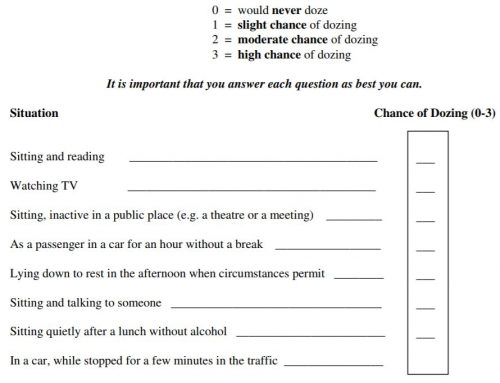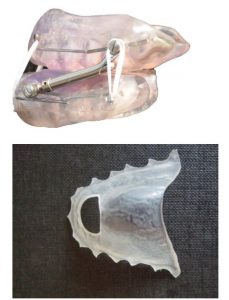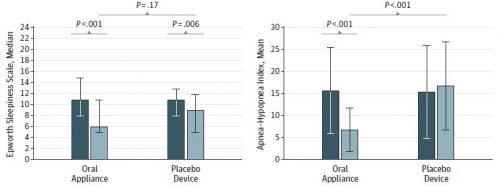Marklund, M., Carlberg, B., Forsgren, L., Olsson, T., Stenlund, H. and Franklin, K.A., 2015. Oral appliance therapy in patients with daytime sleepiness and snoring or mild to moderate sleep apnea: a randomized clinical trial. JAMA internal medicine, 175(8), pp.1278-1285.
The conclusion: “A custom-made, adjustable oral appliance reduces obstructive sleep apnea, snoring, and possibly restless legs without effects on daytime sleepiness and quality of life among patients with daytime sleepiness and snoring or mild to moderate sleep apnea.”
- “Young and colleagues [1] estimated that 24% of middle-aged men and 9% of women have sleep apnea,with 5 or more apneas and hypopneas per hour of sleep, but only 4% of men and 2% of women had the combination of sleep apnea and daytime sleepiness.” Comment: (1) This is a study from 1993. (2) I am not surprised that many with sleep apnea report that they don’t feel sleepy. I would have said I didn’t. I wonder how many have memory degradation, which I experienced. (N=1* in my case, naturally, and confounded with age. Maybe it’s not the apnea!)
- Having said that, the criteria for entry into this study included that “[t]he patients also had daytime sleepiness according to 1 or more of the following criteria: (1) an ESS score of 10 or higher; (2) daytime sleepiness assessed as ‘often’ or ‘always,’ or (3) unwillingly falling asleep during the daytime assessed as ‘sometimes,’
‘often,’ or ‘always’ […] or (4) an irresistible tendency to fall asleep during the daytime 1 or more times per week.” Comment: OK, maybe I’d agree to fall into the 4th category. As for the ESS [Epworth Sleepiness Scale], I was rated on it multiple times in my sleep apnea journey. It’s the sum of responses to the prompts in the image below. Every time I filled it out I faced the following conundrum: I couldn’t figure out if intent mattered. That is, in all but one of these situations I would not ever fall asleep if I didn’t decide I wanted to, no matter how sleepy I was. The exception is “lying down to rest in the afternoon when circumstances permit” because I literally only do that if I want to sleep (so intent and the situation are the same thing). So I always scored a 3 when, in fact, I have dozed in several of these situations (because I decided to and it was too much bother or otherwise impossible to find a place to lie down — intent!). I could easily talk myself to a 7-10 on this and, believe you me, if I thought it mattered one whit in terms of getting treatment I needed, I would have. In truth, I don’t think it mattered at all and I doubt very much if anyone looked at my myriad completions of the ESS. I hate these kind of questionnaires. Seems like useless patient busywork. If I’m wrong, I’d sure like to know.
- Below are pics of the oral appliance (top, a mandibular advancement device) and placebo (bottom, a thingy that just sits at the roof of the mouth, if I’m understanding the text) used in the study. What surprised me (because I just haven’t stumbled across it yet) was just how little the lower jaw is thrust out by a mandibular advancement device such as this: a mean of about 7mm in this study.
- N=45 patients in the treatment arm; N=46 placebo.
- Below are some statistically significant findings, in graphical form. Lots more in the paper. The restless legs results are interesting. I did not know that sleep apnea is associated with restless legs. I do know from personal experience that apnea/hypopnea events can be associated with sleep starts, which can feel like jumping legs (and other body parts). I wonder if the two are distinguished in this and other studies.
* A reader wrote me recently expressing dissatisfaction with my N=1 blogging about sleep apnea. If you feel that way, save yourself and me the bother and don’t email me. I cannot please everyone. Others like them and, truth be told, I write them for myself, so it doesn’t really matter what anybody thinks. You don’t have to read them! You will note, however, that I have weaved in a lot of links to evidence in many posts, including this one. I think the purely anecdotal ones are obvious (no links to studies).






